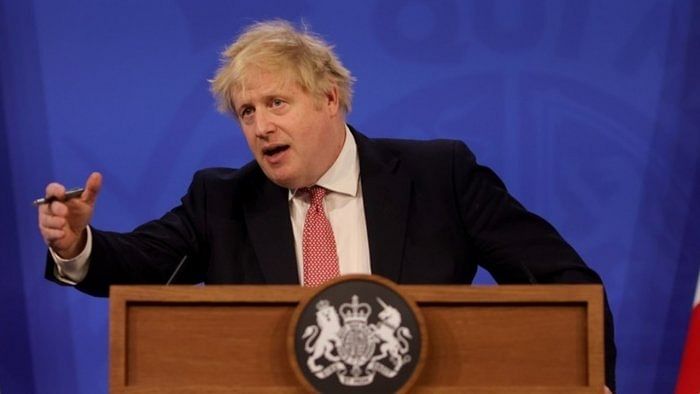
Boris Johnson has topped a public poll to pick leaders who are seen as having done a bad job as prime minister, pollster Ipsos found in a new survey just days before his term comes to an end next week.
The outgoing prime minister was given a poor performance rating by around 49 per cent of the British public polled to judge the performance of post-war British leaders since 1945.
The figure was worse than those for his immediate predecessors, with around 41 per cent saying Theresa May had done a bad job and 38 per cent picking David Cameron. Johnson’s declared political hero, Winston Churchill, topped the survey of post-war PMs with 62 per cent saying the war-time leader had done a good job.
“Winston Churchill continues to top our list of Prime Ministers the public think did a good job in office, followed by Margaret Thatcher,” said Keiran Pedley, director of political research at Ipsos.
Also Read | What next for Boris Johnson?
“Boris Johnson will be reasonably content with finishing fourth on that list but less happy about topping the list for having done a bad job,” he said.
In the 1,100 people surveyed by Ipsos, Johnson had the fourth-highest number of people saying he had done well, with around 33 per cent saying the partygate scandal-hit outgoing leader had done a good job in office, behind Tony Blair on 36 per cent, and Margaret Thatcher on 43 per cent.
His net rating in the Ipsos poll, which was carried out between August 19 and 22, was minus 16, compared with Theresa May’s minus 13 and Cameron’s minus 8. However, Ipsos pointed out that there is a certain degree of “recency bias” in who tops the bad job list.
“Time will tell how Johnson’s legacy is judged, as we see by improved scores for [former Labour Prime Minister] Gordon Brown over time, negative perceptions today may soften in the future,” added Pedley.
Ipsos found that people polling to say Brown did a good job rose from 24 per cent in February 2021 to 31 per cent in August 2022, while the number saying he did a bad job fell from 37 per cent to 31 per cent.
Meanwhile, Johnson is on a farewell tour of the UK before he officially leaves office after his successor is named – either former Chancellor Rishi Sunak or Foreign Secretary Liz Truss – at the end of the Conservative Party leadership election on Monday.
He used a key speech on the final stop of the tour in Suffolk, eastern England, on Thursday to confirm a government pledge to invest GBP 700 million for a deal to buy a significant stake, thought to be around 20 per cent, of a new nuclear power station. The Sizewell plant is planned in the area and is expected to create enough energy to power 6 million homes, or a fifth of all homes in the UK.
Johnson has used his last days to push for nuclear energy as "cheap, clean, reliable and plentiful" to tackle the crisis unleashed by the war in Ukraine and spiralling global oil and gas costs.
“For 13 wasted years the Labour government did absolutely nothing to develop the country’s nuclear industry – they said it didn’t make economic sense. Tell that to the British business and industries that are short of affordable electricity, tell that to the families struggling with the cost of heat and light this winter,” said Johnson, blaming the Opposition.
It marks the conclusion of his final week as British prime minister on the so-called valedictory tour, taking part in a police raid in south London and launching a new submarine in Barrow-on-Furness, north-west England.